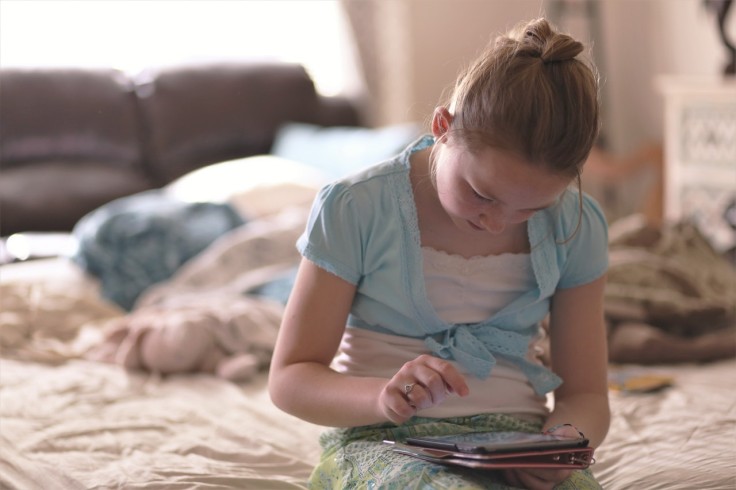
Smartphones, tablets, laptops and even the television are taking a lot of precious time and sometimes make people unproductive. Not only that, a recent study shows that frequent use of gadgets can cause a decline in the learning curve of children.
Researchers from the University of Waterloo, University of Calgary and Alberta Children's Hospital Research Institute claim after a recent experiment that kids who spent more time in front of their gadget screens are doing worse in their tests compared to those who don't.
"When young children are observing screens, they may be missing important opportunities to practice and master interpersonal, motor and communication skills," researchers said.
The study involved 2-year-olds spending about 17 hours per week of screen time. That amount was then increased to 25 hours per week at age 3. Then, they observed how 5-year-olds behave with 11 hours of screen time.
The study revealed that "excessive screen time can impinge on children's ability to develop optimally." So the researchers recommended that pediatricians should advise parents on appropriate amounts of screen time and discuss the potential consequences of excessive use of electronic devices.
Researchers tested 2,400 children and conclusively warn parents to be cautious about the time their children spend on their screens. "What is new in this study is that we are studying really young children aged 2-5, when the brain development is really rapidly progressing and also child development is unfolding so rapidly," said Dr. Sheri Madigan, assistant professor of Psychology at University of Calgary.
The study concluded that excessive screen time could have lasting effects on the child's memory, language development, communication skills, social interactions and attention deficit among others. This is an alarming discovery considering that children in this day and age are more exposed to different types of electronic devices that are used either to entertain them or hopefully to educate them.
As a result, the American Academy of Pediatrics currently recommends that toddlers and young children should spend less than one hour per day and only allows quality educational programming for them.
Dr. Madigan added that "the results show that there is a lasting influence of screen time, especially when children are two to five years old, when their brains are undergoing a period of tremendous development. When a child is watching a screen, he or she is missing out on the opportunity for walking, talking and interacting with others."
Dr. Madrigan, however, suggested that parents can schedule a healthy media habit so kids won't miss out on other areas of development. She recommends play time and social interaction with other kids. Kids can also learn other skills like reading, coloring, drawing or any other educational activity that uses their hands and reasoning skills.
On the contrary, the Royal College of Pediatrics and Child Health avoided making specific recommendations on screen time limits, citing a lack of evidence. Other critics of the study contested the idea and said there are other factors like sleep pattern, nutrition, intelligence quotient, behavioral genetics or family income that should be taken into account.
RELATED: Heavy Mobile Device Use May Interfere With Children's Social, Problem Solving Skills
© 2025 University Herald, All rights reserved. Do not reproduce without permission.








